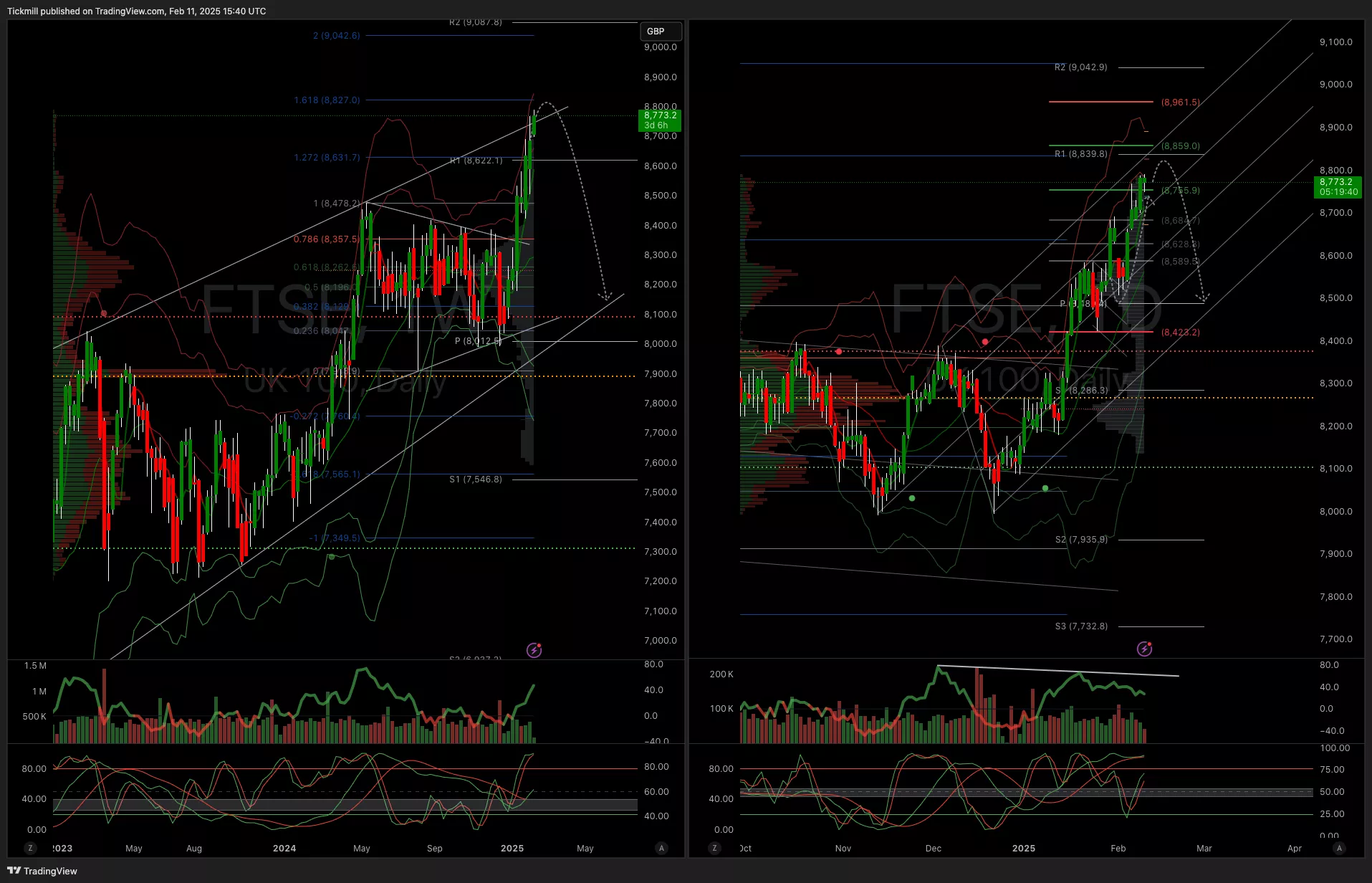FTSE Retreats From All-Time Highs AS Tariff Concerns Persist

Image Source: Pexels
Following an initial increase, U.K. stocks have become somewhat muted in afternoon trading on Tuesday as investors analyze the Trump administration's tariff actions and their potential impact on international trade relations. There are concerns that the newly imposed tariffs on steel and aluminium could result in heightened inflation and a slowdown in economic growth. Industrial metal miners experienced the largest decline in the index, dropping by 2.5%. On Monday, Trump increased the aluminium tariff from 10% to 25% "without exceptions or exemptions" and plans to announce reciprocal tariffs this week on all nations that impose duties on U.S. goods. Additionally, other sectors sensitive to metal prices, such as home construction, fell by 2.3%.
Additionally, investors are processing a report that indicates an uptick in U.K. retail sales for January. A report from the British Retail Consortium indicated that retail sales in the UK rose in January, driven by strong food and non-food sales despite the challenges of increasing costs. Retail sales experienced a year-on-year growth of 2.6% in January, marking the second month of consecutive increases, although the growth rate decreased from 3.2% in December. Sales outperformed the three-month average growth of 1.1% and surpassed the twelve-month average of 0.8%. The growth in food sales picked up to 2.8% in January, up from 1.7% in the previous month, while non-food sales growth decelerated to 2.5% from 4.4%.
Single Stock Stories:
- Entain, a UK-based gambling company, faced a significant downturn after CEO Gavin Isaacs resigned unexpectedly just five months into his role, causing a 10% drop in stock price. Chair Stella David will serve as interim CEO, with Pierre Bouchut stepping in as interim non-executive chair. Entain's shares have decreased about 33% over the past year, reflecting investor unease amid leadership changes. The company is at a critical juncture, aiming to restore investor confidence and achieve sustainable growth in a challenging market.
- Bellway's shares fell 6.1%, making it the top loser on the FTSE 250 index, despite the index's stability. The company remains committed to meeting fiscal expectations for the year ending July 31 and reported a seasonal increase in customer interest. Analysts are cautious about the homebuilding sector, predicting an 8% to 10% drop in Bellway's pre-tax profits for 2026 due to rising construction costs and pricing stagnation. Bellway's challenges have also impacted peers like Barratt Redrow, Persimmon, Taylor Wimpey, and Vistry, which saw declines of 1.8% to 2.2%. Overall, Bellway's stock has decreased about 15% over the past year, highlighting the need for strategic adaptation amid affordability and cost pressures.
- Wynnstay Group Plc's shares rose by 6.6% 303 pence, driven by anticipated stronger performance in fiscal year 2025, thanks to 'Project Genesis'. This transformation initiative aims to streamline operations and boost profit margins, with initial results expected in the upcoming fiscal year. Despite a revenue drop from 735.9 million euros to 613.1 million euros in the past year, Wynnstay remains optimistic. Over the past 12 months, its stocks declined by about 22.3%, but recent market responses suggest a possible positive shift. Investors are closely monitoring the company's progress in achieving sustainable growth amid challenges.
- European airlines faced setbacks after TUI, Europe's largest travel operator, warned of declining summer bookings, particularly in the UK and Germany. This slump hit airlines reliant on these markets. TUI's shares dropped 9%, with Wizz Air down 5.6%, Lufthansa 4.5%, EasyJet 4.2%, and IAG, British Airways' parent, 2.5%. The drop in airline stocks underscores the industry's vulnerability to shifts in consumer behaviour and regional demand, emphasising the need for adaptability in changing market conditions.
Technical & Trade View
FTSE Bias: Bullish Above Bearish below 8400
- Primary support 8400
- Below 8400 opens 8225
- Primary objective 8600
- Daily VWAP Bullish
- Weekly VWAP Bullish
(Click on image to enlarge)

More By This Author:
Daily Market Outlook - Tuesday, Feb. 11FTSE At All-Time Highs As BP Surges On Activist Investment
S&P 500 Weekly Action Areas & Price Targets - Monday, Feb. 10



